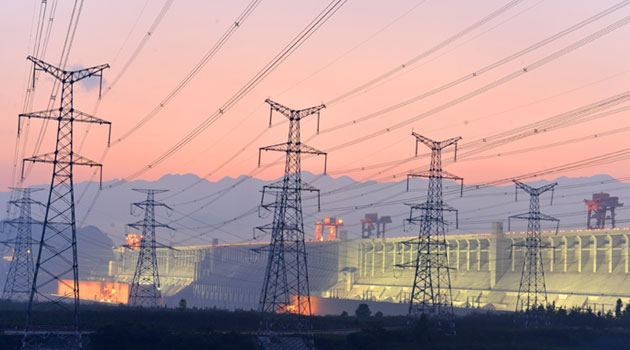
Coal accounted for 73 percent of the electricity production in China at the end of the last year/XINHUA-File
The latest move came Friday, when Norway’s parliament voted to force its sovereign wealth fund – the world’s biggest – to pull out of firms that are heavily involved with coal.
Earlier in the week, French energy group Total announced it would withdraw from its coal activities, notably in South Africa where it is involved in the production and sale of the fuel which is important for electricity in numerous countries around the world.
In May it was French insurer Axa that said it would pull out 500 million euros it had invested in energy companies that generate over half of their turnover from producing or burning coal.
French bank Credit Agricole followed by saying it would cut funding for coal mining projects.
Even the Church of England, which manages some 12.4 billion euros in investments, said it would divest some £12 million ($18.3 million, 16.5 million euros) it had in companies that generated more than 10 percent of their revenue from coal or oil tar sands.
The announcements are an important development in efforts to reduce the output of greenhouse gasses that are causing global warming.
However it will be difficult to counter the fact that emerging market nations, particularly China, rely heaving on coal for meeting their growing need for electricity.
Coal accounted for 73 percent of the electricity production in China at the end of the last year.
The International Energy Agency estimated in December that coal demand will continue to grow by an average of 2.1 percent through 2019, even if this is slower than the 3.3 percent average recorded in 2010-2013.
“We have heard many pledges and policies aimed at mitigating climate change, but over the next five years they will mostly fail to arrest the growth in coal demand,” IEA Executive Director Maria van der Hoeven said at the time.
Even if Chinese authorities want to reduce coal use to improve air quality, the IEA estimated that China would account for three-fifths of the increase in coal demand through 2019.
“The country has announced 500 gigawatts of coal-fired power stations in the years to come,” said Nathalie Desbrosses, head of energy market research at Enerdata.
That is the equivalent of more than 500 nuclear reactors.

























